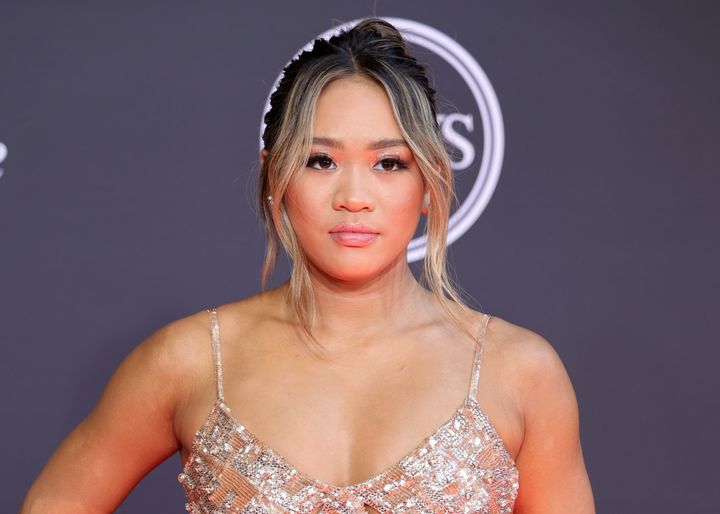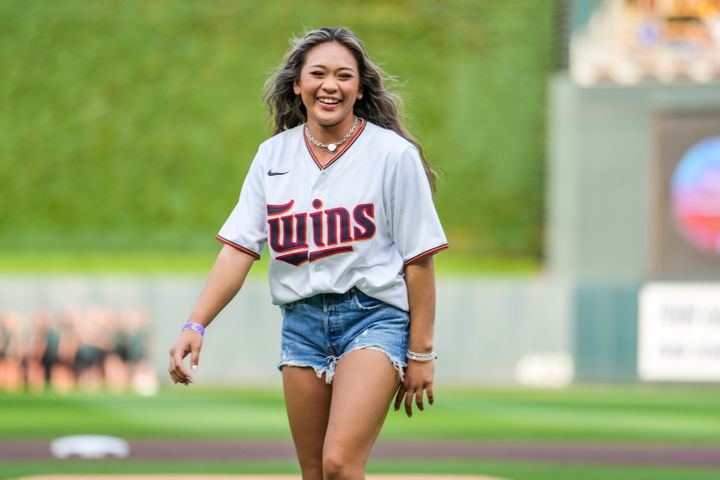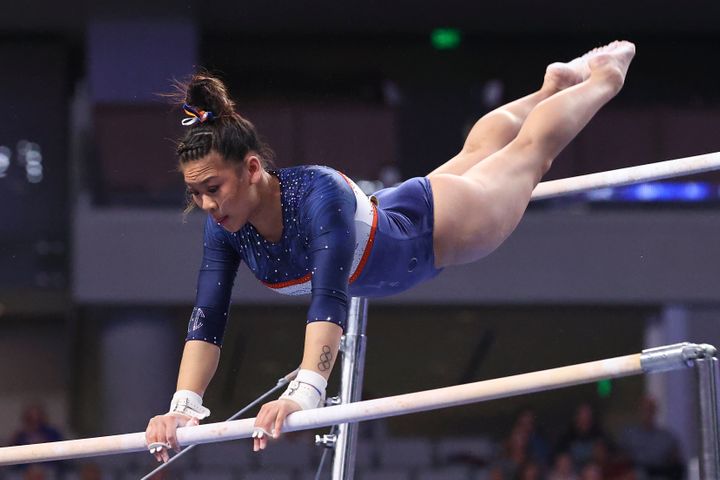U.S. gymnast Suni Lee said this week she’s still healing from a bout of anxiety and self-doubt after winning the women’s all-around gold medal at the Tokyo Olympics.
Lee was already a household name when she became a student at Auburn University last year, but the weight of expectations threatened her first college gymnastics season to the point that she told her coach, “I can’t do this.” She even questioned whether she deserved to win in Tokyo, attributing the negativity to “impostor syndrome.”
“I’m just letting my mind heal and my body heal still, because my life did change overnight and I definitely didn’t expect it,” she told HuffPost. “So when everything started coming at me, I put a lot of pressure on myself toward the end of the season. Now I’m going in with a fresh mindset. Because when I just go out and do what I normally do, I am unstoppable.”
If the 19-year-old sounds like she’s into self-affirmations, well, she is. She admits the practice sounds “cheesy” ― but writing and vocalizing positivity has helped. She reminds herself to keep her “keywords” at the ready.
“There’s no need to be, I guess, shy about talking about your goals, because if you start saying something enough, you believe it,” she added.
C. Morgan Engel via Getty Images
Lee, who also won Olympic silver in the team event and a bronze on the uneven bars, finished her collegiate season on a high note. She became the NCAA champion on the balance beam and took second in the all-around.
The gymnast has already begun fall classes and preparing for her sophomore season while juggling interviews on behalf of Invisalign. She said the teeth-aligner brand approached her after she got regular braces and she is now a user. Coincidentally, she said, she asked her parents for Invisalign when she was younger because she was “too insecure to smile or talk” and was told the family didn’t have enough money.

Momodu Mansaray via Getty Images
As for specifics on her possible Olympics future at the 2024 Paris Games, Lee’s representatives told HuffPost before her interview that she preferred not to discuss the topic (along with an attack last year in which she said she was pepper-sprayed and called racial slurs.) But NBC Sports recently reported that Lee attended a USA Gymnastics national team camp in July and “plans to return to elite gymnastics competition at some point ahead of” the Games.
Lee’s profile remains high in the Hmong community, an ethnic group from Vietnam, Laos and parts of China. Her home state of Minnesota has the greatest concentration of Hmong in the country.
“The Hmong community is so small, for them to have a role model to kind of lead the way for them is cool,” she said.
Earlier this year, however, she felt betrayed when some in her community criticized her for dating a Black man, USC football player Jaylin Smith. “It was not the reaction I expected,” she recalled.
“I guess I just realized that people will always have an opinion on what you do, and I think I just let it get to me,” she said. “I couldn’t just stay quiet. I felt like because I have such a big voice in the community that it’s important to address it, because I know a lot of Hmong people aren’t going to be happy about it … but I know that a lot of younger Hmong people are in the same boat that I am.”

Brace Hemmelgarn via Getty Images

